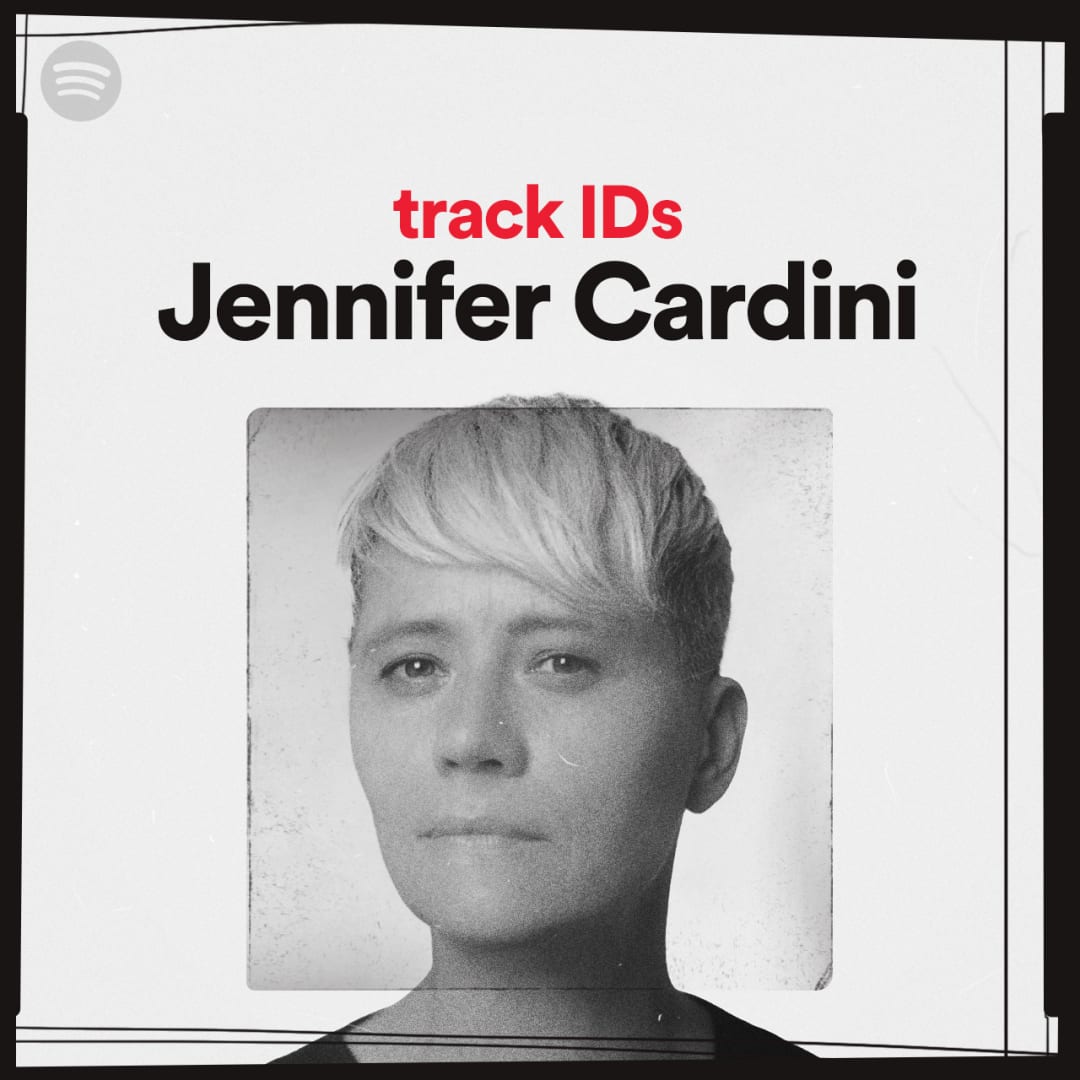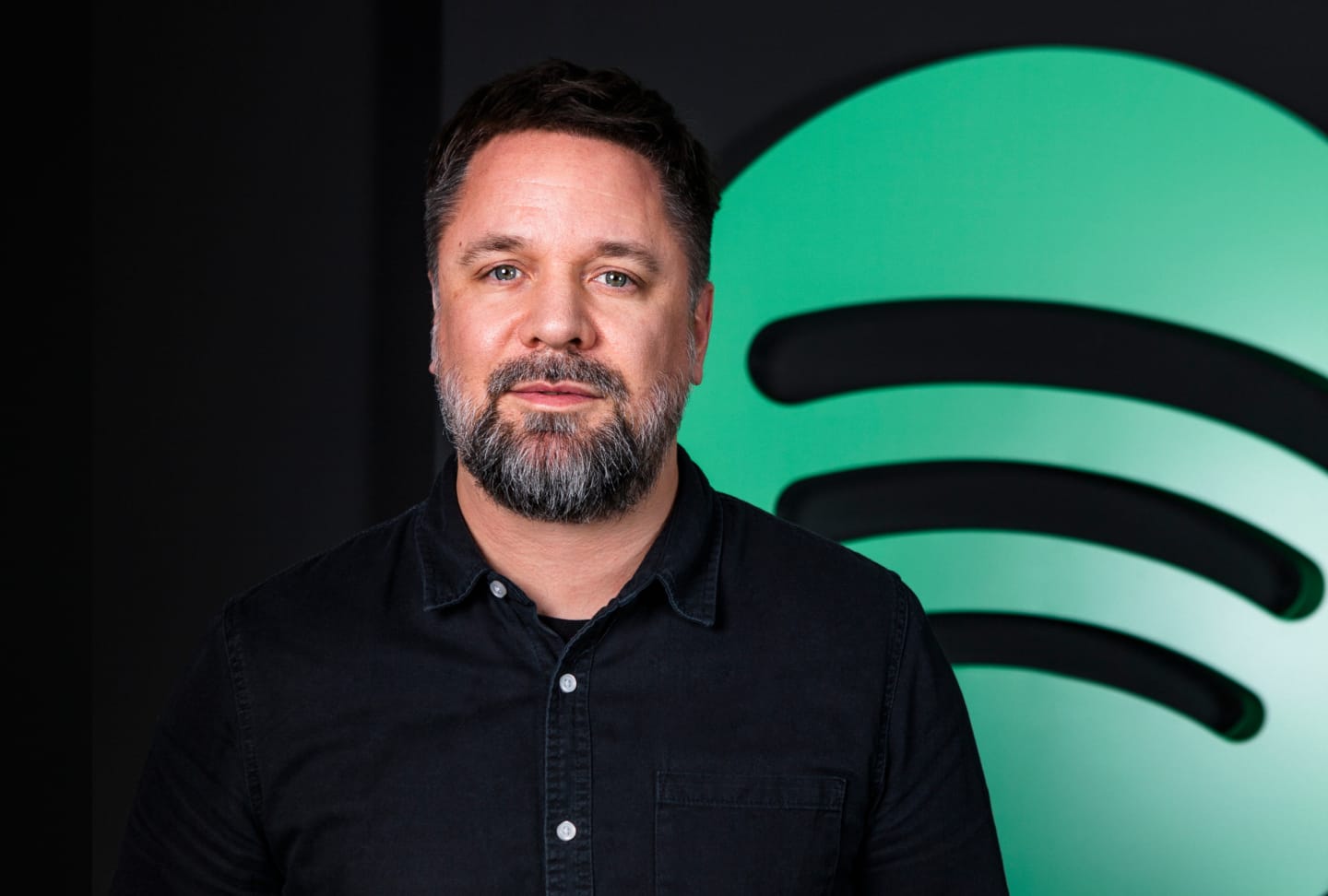
Jennifer Cardini on Spotify’s New DJ-curated Playlist Series, track IDs
As one of 23 curators, the French DJ is championing diversity by bringing attention to under-represented artists on the platform.
More than 20 years after launching her DJ career in the South of France, then becoming a resident at Paris’ Pulp and Rex clubs, Jennifer Cardini still rues how difficult it is to sort through new music. “There is so much content,” she said in an interview over Zoom. She uses every tool available to her to bring undiscovered talent to her sets: a smattering of Facebook groups—”Italo Disco,” “Les Yeux Oranges,” “House from the ‘90s”—blogs, record store websites, and recommendations from friends. Since she switched to playing almost exclusively digital a few years ago, it’s become easier, in some ways, to quickly parse through the downpour of releases emanating from leftfield electronica’s prolific underground. But it’s also been hard for her to streamline her discovery process and share her new finds, as well as her own label’s releases, on one singular online platform. That’s why she turned to Spotify.
Click on the button to load the content from spotify.
Cardini is one of 23 artists who have been chosen to curate playlists on the streaming platform’s new initiative, track IDs. The project aims to lift the veil on how DJs put together their sets by giving listeners a glimpse into their favorite selectors’ virtual record bags. Each collection contains between 50 and 80 songs that are updated weekly to reflect what each DJ is listening to at home and putting in their mixes. Cardini’s playlist, which spans her signature penchant for downtempo, sludgy atmospherics and contemporary French tech house, follows the musical arc of what she describes as a “typical Panorama Bar Saturday set” (she has been a monthly guest at the legendary club since last year). It’s also an outlet for her to share what she’s been digging up during confinement, when she’s “bought more music than ever,” plunging particularly deep into the wells of experimental, ambient, and non-dance floor genres.
track IDs’ other curators are household names, including Marcel Dettmann, Amelie Lens, Nina Kraviz, Carl Cox, Jayda G, DJ Boring, and Honey Dijon, among others. They’re the first of a fellowship that will expand to include more DJs from around the world and from disparate corners of electronic music’s lesser-known styles, according to Spotify’s Head of Music DACH, Maik Pallasch. As listeners follow the playlists and “like” songs, the Spotify algorithm will suggest similar tracks and artists, acting as an accessible discovery and archival tool for aspiring DJs or fans new to electronic music. Cultivating an ongoing relationship between fans and artists is increasingly important during the pandemic, Pallasch claims, when fans aren’t seeing their favorite DJs in clubs and festivals, and the internet has been deluged by new music from producers that have historically collected most of their income behind the decks.

Online streaming’s surging popularity has been a topic of heated debate in the industry in recent years, forcing many labels to adapt their distribution channels as listeners have clamored towards personalized, pre-curated playlists in lieu of records, or even other digital media. In 2020, streaming makes up more than half of recorded music’s revenue, and listeners have a veritable feast of platforms to choose from: Apple Music, Google Music, YouTube Music, and TIDAL, to name a few. Spotify claimed the highest number of streaming subscribers worldwide in 2019, and has more than 299 million users, including 138 million subscribers across 92 markets, according to marketing copy on its homepage. A year-end report by the Recording Industry Association of America says that revenues from streaming grew to $8.8 billion in 2019—and this metric doesn’t account for the spike that streaming’s incurred since COVID-19 brought even more traffic to playlists focused on at-home moods and activities, like yoga, meditation, and working out.

The advent of the streaming economy has undeniably changed how music is valued, made, and consumed. And while some critics have inveighed against the inequities couched within Spotify’s algorithmic suggestions and pro-rata reimbursement models, which tend to favor the site’s most popular and high-profile artists, Cardini sees streaming as a natural growth of a digitizing industry. “I know that some of my colleagues have a very negative relationship to digital and streaming,” she says, “but for me, I do a job where the format is changing, and I’m just adapting to it with my label, with my artists. What else should we do?”
On July 31, Cardini uploaded the most recent compilation on her imprint, Correspondant, directly to Spotify. She’s stopped pressing vinyl altogether, she says, because it “slowly eats the benefits”—namely, financial—that she can reap on online platforms alone. Selling 300 copies of a record typically leaves her with just enough to break even, little money left to give directly to producers, and a narrow listenership with access to the physical record.
By taking on a role as a Spotify curator, Cardini has also found that she can make an impact in championing diversity. Many of the accusations leveled against the streaming platform have argued that by remunerating artists who already occupy significant mainstream (and high-paying) status, they perpetuate financial, gendered, and racial disparities. As an out lesbian and longtime advocate for women’s and LGBTQ+ rights, Cardini sees her playlist as an opportunity to shed light on artists who might not otherwise receive attention on the site. “I make sure that queer artists are on my playlist, that nonbinary artists are on my playlist, that marginalized people are represented on my playlist. My career is based on the underground LGBTQ+ queer communities!” she says. About half of her 85 selected tracks are by women. Bringing these voices to Spotify can ultimately act as an equalizer in an unequal industry, she adds. “Everyone can discover it this way,” she says. “And this should be normal. I feel that it’s something I have to do.”
Chloé Lula is a freelance journalist, DJ and producer based in Berlin. You can follow her on Instagram, Facebook and Twitter.
Published August 25, 2020. Words by Chloé Lula, photos by Fredrik Altinell.
